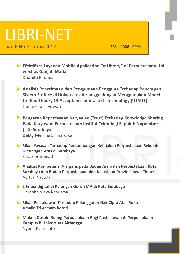Indonesian Journal of Social Sciences
ISSN 1978-760X
Vol. 3 / No. 2 / Published : 2011-07
Related with : Scholar Yahoo! Bing
Original Article :
Political and religious communication in indonesia: a preliminary logological analysis
Author :
- Peter Suwarno*1
- School of International Literatures and Cultures, Arizona State University, Tempe, Arizona, USA
Abstract :
Using Burke’s theory of identification and logology, this paper analyzes the rhetorical strategies that can be found in political and religious communication in Indonesia. This paper focuses on the discourses and the communicative strategies of religious groups as well as political parties and their leaders throughout Indonesian history since its independence, but especially during the reform era following the abdication of Suharto in 1998. This paper does not provide a detailed account of specific communicative events or speeches, but focuses on the most commonly used terms and selected rhetorical visions that best represent and explain the motives as well as the rhetorical strategies of the major leaders or groups that have significant roles in the life of the Indonesian people. The rhetoric and communication of the reform era is different from those in Soekarno’s or Soeharto’s eras. Soekarno’s charm, charisma, and confidence in his rhetorical power enabled him to dominate the stage of Indonesia’s political communication as well as to unite the diverse Indonesian people by confronting them with his selection of common enemies. Soeharto’s coercive campaign was based on themes and rhetorical visions that Soeharto himself selected, controlled and portrayed, whereby anyone or any group that opposed his rhetorical vision are viewed as common enemies and scapegoats. In the reform era, political persuasion often manipulates religious beliefs such as the use of hell to scare people to support or vote for certain parties; political groups’ inconsistency in using rhetorical strategies confirm the idea that political parties are opportunistic, using whatever means to gain political support. On the other hand, religious rhetoric consistently uses antitheses and common enemies to decisively exclude non-believers.
Keyword :
Indonesia, politics, communication, logology, religiosity,
References :
Azra A,(2006) Indonesia, Islam, and Democracy: Dynamics in A Global Context. Singapore : Equinox
Burke K,(1969) A Rhetoric of Motives. Berkeley : University of California Press
Legge JD,(2003) Soekarno: A Political Biography Singapore : Archipelago Press
Archive Article
| Cover Media | Content |
|---|---|
Volume : 3 / No. : 2 / Pub. : 2011-01 |
|













